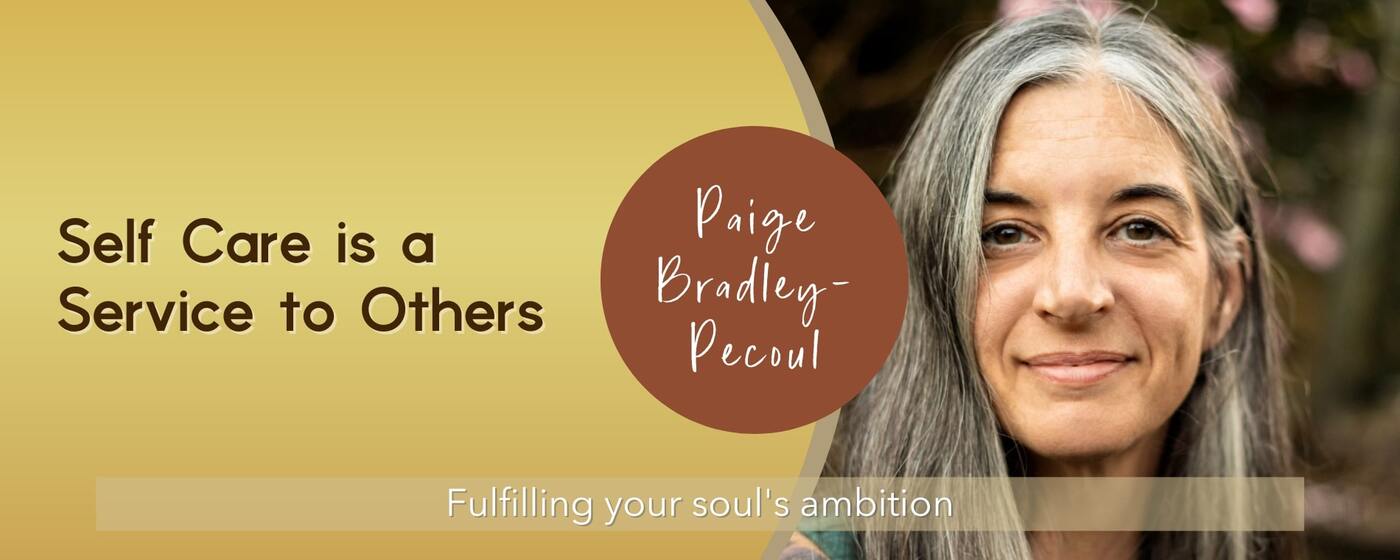
Self Care is a Service to Others
Recently, I had a conversation about my commitment to impeccable self care with a good friend who is deeply tired due to caregiving. At some point, she leaned in and asked, “Isn’t it selfish to do these practices?”. My answer to this question is an emphatic “NO”. I believe it is quite the opposite, actually.
Like my friend, I suspect that you are someone who cares deeply for your people. Your care and concern for the well being of your family, neighbors, and community are likely to be a top priority for you. You probably go out of your way to serve them on a regular basis. It may even be that your care for them takes precedence over your care for yourself most days, especially if you are raising children, or are a caregiver to a sick spouse, or an elderly parent or parents.
I feel this.
For the longest time, I tried to tell my loved ones how to best care for themselves. I tried educating my immediate and extended family about nutrition, and encouraging them to exercise. This was often met with resentment, disdain, or dismissal. Because of my level of care, even though I was frustrated with them, I still showed up and went out of my way for them, often exhausting myself in the process. I knew what they needed, and I prioritized it, even if it meant there was no energy left for me. Over time I started resenting this, and them.
Fast forward to the present: This year we had a plant based Christmas dinner, at the request of my daughters. These days, my husband eats a larger lunch and lighter dinner. We all fast for 13+ hours each day. One of my girls willingly joins me for a short morning workout. We have conversations about how to care for ourselves, body, mind, and spirit.
The only thing that changed was my level of commitment to myself. I quietly took the energy I put into impassioned pleas for them to change, and put it into transforming my daily habits, and everything shifted. I am still caregiving daily, but I do so with an open heart, and a clear mind. I have the energy and stamina to meet the needs of my family, and resources to draw from in case of a restless night, or long day of doctor’s appointments. I’ve learned a lot, most importantly this:
Self care is not selfish, it is a service to others.
If you have ever flown, you have heard this instruction, given by the flight attendant, “In the event of a loss of cabin pressure, before you assist others, always put your oxygen mask on first.” Why? Because if you run out of oxygen, you can’t help anyone else. Taking care of yourself first will allow you to better help others. This idea has also been communicated as “You can’t pour from an empty cup.”
When we are depleted, it is difficult to go above and beyond for our people. If we are not well fed, we run out of energy. If we only have enough stamina to get through the next hurdle, we get stressed out over a small change in plans or a minor inconvenience. We may be short tempered, cross, and impatient.
Conversely, when we are rested, nourished, and grounded in our physiology, with a high functioning immune system and energy reserves, we are better, better parents, spouses, neighbors, friends, employees, bosses, caretakers and people. Across the board we are better. We can show up to our responsibilities with a higher level of care and commitment. Our commitment to ourselves benefits those around us.
This is true for anyone, anywhere, and especially true for caregivers, who often feel burnt out and tired. Caregiving requires presence and selflessness, which is much easier for someone who is not depleted. Those we care for can sense when we are resentful of our responsibilities to them, which can cause them to feel guilt and shame. Self care practices, like sitting in silence, moving our bodies, and resting, will allow us to access our compassion so what radiates from us is our love and care.
Perhaps the most impactful way that caring for ourselves serves our loved ones and communities is that in doing so we can inspire others to do the same for themselves. This is what played out in my home. When I stopped nagging everyone about what they should be doing and began just doing what I needed to do for myself, I got results. These results were visible and palpable. My family noticed and began to ask how they could get the same results. I was able to share in a new way, a way that was welcomed and well received. I was giving them, and others, an example to follow. In making myself a priority, I was giving permission for them to do the same. This is a service to a culture that is overworked, overweight, overtired, and overstimulated.
- When you are rested, you are more patient,
- When you are nourished, you have more energy.
- When your immune system is functioning well, you get sick less often. You miss work less often. You recover faster and you don’t miss out on life.
- When your mind is clear you can be present for others. You can listen deeply and respond from a place of authenticity.
- When you are connected to your spirit, all of life is meaningful, even the hardships.
- When you make yourself a priority, you empower the people around you to respect and care for themselves.
A lot of people I encounter don’t know how to prioritize themselves, especially women. I didn’t either. I am grateful I found a community to join that would support me while I transitioned from putting everything and everyone before me, to someone who put their oxygen mask on first. I encourage you to embrace the habits that can heal you, restore your energy, reset your nervous system, clear your mind, ground you person in your physiology, and connect you to your spirit so you can be the person the people around you need and want you to be. Your dharma may be to serve, but you need not be a martyr to do it.


